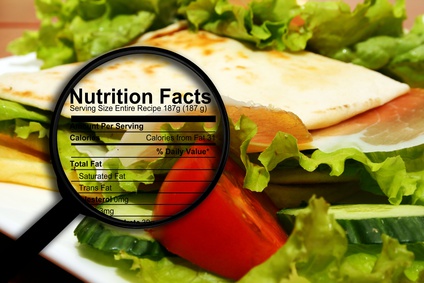
Nutritional recommendations for weight loss
My nutritional recommendations for weight loss are based on a Paleo diet perspective. Although these principles will certainly work for short-term results, don’t let the word “diet” mislead you — I highly discourage “dieting”, which usually entails slashing calories, and therefore nutrients. This is a lifestyle change that will not only help you lose weight/get lean, but also increase your energy, increase your body’s efficiency for burning fat, and decrease inflammation in the body.
The most important thing to remember when following these nutritional recommendations for weight loss is to eat food made from scratch. Be sure to read all labels, or better yet, don’t eat food with a label… if there are ingredients that look like they are out of a chemistry textbook, that’s a red flag. It’s not meant to be eaten!
Things to be eliminated are most grains, soy and processed foods. Why, you ask? Processed foods are chemicals, grains are inflammatory, and soy can cause hormone disruptions. Eliminating dairy is also suggested because it is highly acidic and inflames/irritates the digestive system, but I’ll admit that can be pretty difficult, especially when trying to meet protein requirements. Unless there’s a dairy allergy, I allow moderate amounts of dairy for my clients.
I am strongly against “starvation”/very low calorie meal plans. Eating too little for an extended period of time WILL backfire on you. It will cause severe hormones disruptions that are very difficult to fix, sleep problems, risk of binge eating, muscle loss, and a slowed metabolism, particularly when you’re doing grueling workouts.
I recommend “carb-cycling” for a couple of reasons: 1. It helps to prevent fat loss plateaus. 2. It will help keep your energy levels high so you can continue having amazing workouts!
Macronutrient breakdown for low-carb, lower calorie days:
33% of calories from carbohydrates: For example, someone eating a 1,600 calorie meal plan would eat 132g carbs/day. All carbs should come from high fiber vegetable sources.
33% of calories from protein low carb diet days: A 1,600 calorie plan would have 132g/day. Organic/grass-fed/free-range meats, eggs, and dairy are recommended, but not required.
33% of calories from fat: A 1,600 calorie plan would have 59g/day. Great sources are grass-fed beef (this animal fat has many health benefits, unlike conventional corn-fed beef) egg yolks, fish fat/oil (supplement highly recommended), flax, coconut products, nuts and nut butters, and avocados.
Macronutrient breakdown for high-carb, higher calorie days:
50% carbs: For a 2,000 calorie plan this would be 250g. In addition to vegetables, 1-2 pieces of fruit, sweet potato, rice, quinoa, and steel cut oats are options.
30% protein: For a 2,000 calorie meal plan this is 150g. Same food recommendations as in the lower calorie plan.
20% fat: For a 2,000 calorie plan this is 44g. Same food recommendations as in the lower calorie plan.
I generally recommend 4 to 5 low carb days followed by a high carb day. This is most effective when it coincides with specific weight training, cardio, and rest days. Timing of carbs on the higher carb day is also critical, and can vary from person to person. For more info, e-mail me at [email protected].
One more important thing worth mentioning: Do not eat starches/sugar combined with high fat items like cheese, cream, and fatty cuts of meat. When these items are combined in the same meal (consider things like fettuccine alfredo, a loaded baked potato, and pizza) it turns off fullness signals and also releases fat storage hormones. Bad news!
Want to Learn More?
- 7 Best Tips to Burn Fat during your Workouts
- Top 5 ways to lose weight fast
- 6 ways to help you lose belly fat
Follow Amanda on Facebook!